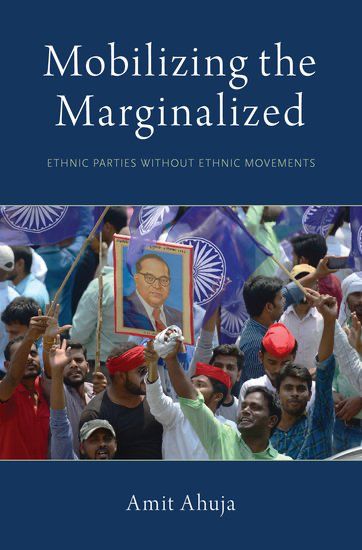
A Literary Wonder

Growing up in India, Amit Ahuja knew little about Dalits, the people at the bottom of the country’s caste system who were long known as “untouchables.” Although large in numbers, they were mostly invisible in textbooks — as they were expected to be in society.
A UC Santa Barbara professor of political science, Ahuja in recent years visited hundreds of Dalit communities to understand their evolving place in Indian politics. The result was “Mobilizing the Marginalized: Ethnic Parties Without Ethnic Movements” (Oxford University Press, 2019).
For his deep and elegant exploration of Dalit representation, Ahuja has been awarded the Kamaladevi Chattopadhyay New India Foundation Book Prize 2020, the country’s most prestigious honor for non-fiction.
“It is a tremendous honor,” he said. “So many people supported me through the research and writing of this book. I am grateful to be able to share this recognition with them. The prize recognizes the book; its motivation, argument and its research. A scholar cannot ask for more.
“Researching and writing a book makes a substantial emotional claim on the author, as it should,” Ahuja continued. “I realize I stand alongside some very fine authors. The past winners as well as many nominees of the NIF book prize from this year and from previous years sit on my book shelf. These are magnificent books. For my book to find itself in such remarkable company is very special.”
Kathleen Bruhn, professor and chair of political science, said the prize is a well-deserved honor for a scholar who has consistently shone a light on the plight of the marginalized.
“We are thrilled to hear the news that our colleague has won such prestigious international recognition for his research,” she said. “Professor Ahuja’s work is at the core of our departmental focus on the politics of identity. His book, “Mobilizing the Marginalized,” examines how poor and marginalized people gain access to the political system by mobilizing political identities. He has also published work on the politics of religious identity and military cohesion, racial prejudice and nationalism. We are proud to be associated with him.”
Through their political activism, Ahuja said, Dalits have succeeded in undermining the legitimacy of a 2,000-year-old social system that excluded and humiliated them by treating them as untouchables. This incomplete, but irreversible change, he said, is one of the most significant achievements of Indian democracy. Their mobilization, however, remains puzzling.
“Dalits’ parties perform poorly in elections in states historically home to movements demanding social equality, while they do well in other states where such movements have been weak or entirely absent,” Ahuja said. “For Dalits, collective action in the social sphere appears to undermine rather than bolster collective action in the electoral sphere. I was very drawn to this puzzle of Dalit mobilization and the relationship between political parties and social movements. My book tells the story of Dalit mobilization, the forms it takes and its consequences.”
To conduct his research, Ahuja made multiple trips to four large states — Maharashtra, Tamil Nadu, Uttar Pradesh and Bihar — that are home to 43% of India’s Dalits. In those visits he conducted 400 one-on-one interviews and 80 focus groups. He observed several electoral campaigns and protests, and spoke to social activists, and party workers and leaders.
As he writes in his book, “Without organization, the weak just do not get taken seriously. Organization is their first weapon. It is the only way they stand any chance of getting a seat at the table. This is what drew me to Dalit mobilization. I wanted to study Dalit movements and parties.”



